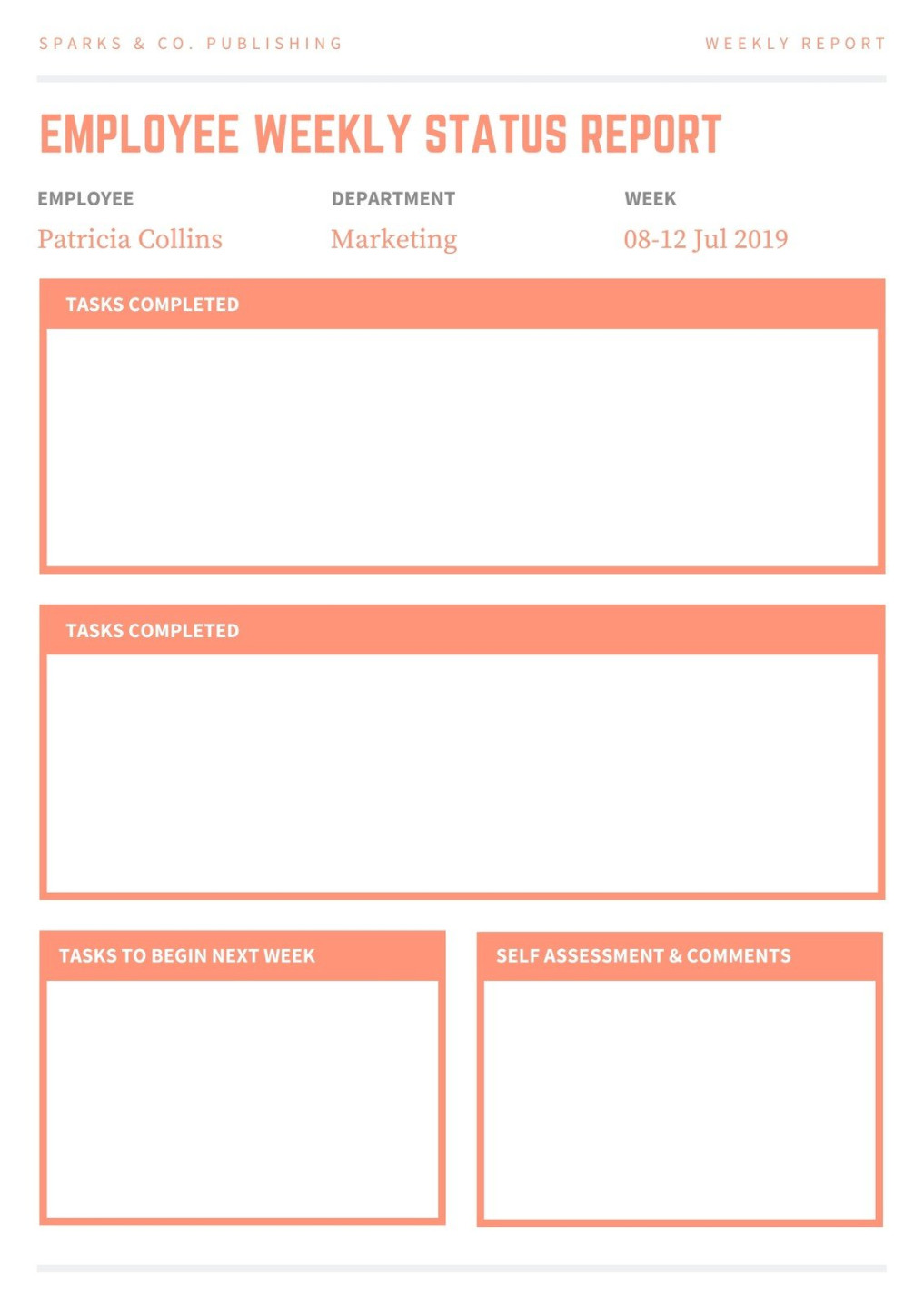A well-structured Weekly Manager Report Template is an essential tool for managers to effectively communicate their team’s progress, challenges, and achievements to upper management. A professionally designed template not only enhances the clarity and readability of the report but also reinforces the manager’s credibility and the team’s overall performance.
Key Components of a Weekly Manager Report Template
A comprehensive Weekly Manager Report Template typically includes the following key sections:
1. Executive Summary

This is a concise overview of the week’s most significant developments, highlighting key accomplishments, challenges faced, and future plans.
2. Team Updates
This section provides a detailed breakdown of each team member’s progress and contributions towards the team’s goals.
3. Project Status
This section outlines the status of ongoing projects, including their progress, deadlines, and any potential risks or obstacles.
4. Key Performance Indicators (KPIs)
This section highlights the team’s performance against key metrics and objectives.
5. Challenges and Opportunities
This section discusses any significant challenges or obstacles the team faced during the week, along with potential solutions or mitigation strategies.
6. Future Outlook
This section provides a brief overview of the team’s plans and priorities for the upcoming week or month.
Design Elements for a Professional Weekly Manager Report Template
The design of your Weekly Manager Report Template should be clean, consistent, and visually appealing. Here are some key design elements to consider:
1. Consistent Branding
Incorporate your company’s branding elements, such as colors, fonts, and logos, throughout the template.
2. Clear Structure
Use headings, subheadings, and bullet points to organize the content and make it easy to read.
3. Visuals
Use charts, graphs, and images to enhance the clarity and understanding of the data.
4. White Space
5. Professional Fonts
Choose fonts that are easy to read and professional in appearance.
Tips for Effective Weekly Manager Report Writing
Be concise and to the point. Avoid unnecessary details or jargon.
By following these guidelines and incorporating the recommended design elements, you can create a professional Weekly Manager Report Template that effectively communicates your team’s progress and achievements.